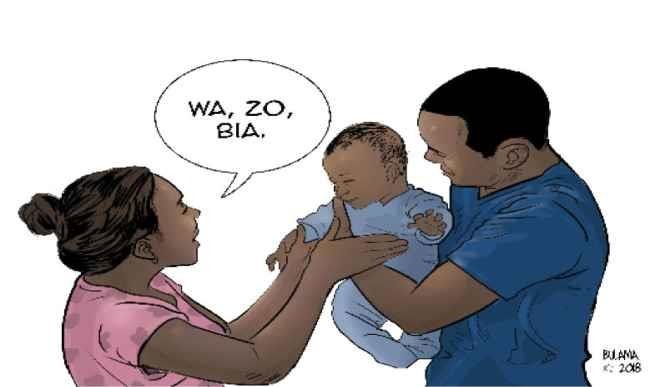
Dictionary.com defines Lingua franca as “any language that is widely used as a means of communication among speakers of other languages.”
Thefreedictionary.com defines Mother tongue as “the language first learned by a child and it is a language from which another has evolved.”
Wikipedia adds that it is a language that a person has been exposed to from birth or within the critical period.
Linguists have categorized it as L1 and the lingua franca as L2. However, deciding which language a child will learn first has generated a lot of debates, especially if both parents are from different ethnic groups. And since it is assumed that a mother spends more time with the child or children, he/she would learn the mother’s language faster and better than the father’s language.
With this in mind, LifeXtra sought to know what people had to say on the matter.
Alex Olajuwon, a journalist, said “The child usually learns the mother’s language first. This is because of the bond between the mother and the child. Consequently, because of the closeness and easy flow of communication between both of them, mainly non-verbal symbols make it very easy for a child to learn the mother’s language fast and first.”
Also speaking to LifeXtra, Ahmed Ola Noah agrees to learning the mothers tongue first because “the mothers tongue is his/her indigenous language and must be taught the child. That is the language the grandparents and villagers would use in communicating with him.
A young woman who identified herself as Chinny said “The lingua franca first, then subsequently mother tongue. “I said Lingua franca because it would aid his/her communication skills with their peers and environment.”
Manjaja Difur, a Jos-based music producer, said “The lingua franca because there’s this inbuilt expertise that comes with what someone learns from birth. The child will have a deep knowledge and understanding of a language someone has when he learns it as a first language that may never be achieved if it’s a second language.”
“Most of his life’s involvements would require some good level of fluency with the lingua franca than it would the mother tongue.”
He added, “I prefer a child taking advantage of the depth that comes with a first language to build his lingual strongholds. The mother tongue can be learned anytime and the depth or shallowness of a child in that doesn’t affect his life and future as much as the lingua franca.”
As children grow up, they pick up words, phrases, and eventually entire languages. These languages are typically the ones that are spoken at home. In the most basic situations, this language would be native language, their mother tongue and their first language.
Furthermore, as they grow up, they may even pick up and learn more languages, perhaps becoming bilingual or even multi-lingual. This is where their confusion between mother tongue and first language starts to arise.
Here, mother tongue is basically considered to be the native language. This is the language that is spoken at home by the family, by the parents. It is also the language that is generally passed down through the generations, and is typically the language that is spoken by one’s ethnic group.




